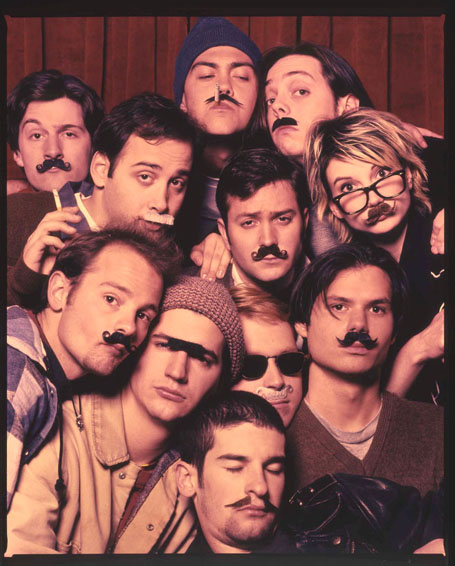
The collection of Steven Starr, a 1980 graduate of the University of Wisconsin’s department of communication arts, spans his career as writer, director, producer, and new media entrepreneur and provides insight into the day-to-day negotiations behind film and television production. Starr worked his way up at the William Morris Agency, eventually representing clients such as Ang Lee, Tim Robbins, and Larry David. He left the agency to produce the award-winning independent feature films Johnny Suede (1991) as well as Joey Breaker (1993), a semi-autobiographical tale about a callous talent agent whose girlfriend is played by Cedella Marley, the late-Bob Marley’s daughter. Starr met Bob Marley as a college student and maintained a close professional and personal relationship with the Marley family since bringing Bob to the University of Wisconsin in spring of 1978. He and Rita Marley, Bob’s widow, have served as executive producers on a proposed biographical drama of the late reggae singer. In 2005 Starr founded Revver, an online video network offering innovative revenue-sharing models with users. In 2006, Revver was awarded the Most Influential Independent Website by Television Week, nominated for an Advanced Technology Emmy Award, and honored as one of the 100 most promising startups by Red Herring.
While the Starr files contain a number of holdings from the projects discussed above, among the more notable materials come from his tenure as co-creator and co-producer of the MTV sketch comedy series The State (1993-1995). In its three-season run on the cable network, The State drew the ire of the popular press (with one critic saying the series was “so terrible it deserves to be studied”) and, at the same time, reflected and helped shape the cultural sensibilities of Generation X. Unlike the topical humor and character-centered style of its comedic contemporaries, The State embraced a sense of hyper-irony, conceptual irreverence, and formal play that was more Monty Python’s Flying Circus than Saturday Night Live.
After steadily gaining viewers over the course of its MTV run, The State attempted an ill-fated move to CBS in the fall of 1995. The broadcast network incarnation of The State never developed beyond one Halloween special, and the group splintered off into smaller projects soon thereafter. Today, alumni of The State have taken on myriad creative roles in comedic vehicles online (Wainy Days [2007-]; The Michael Showalter Showalter [2007-2008]), on television (Comedy Central’s Reno 911! [2003-09]; Stella [2005]) and in film (Night at the Museum [2006]; I Love You Man [2009]).
The production notes, scripts, and original broadcast videos of The State housed in the Steven Starr collection offer a detailed look at the chaotic creative process of sketch comedy, one that negotiates the performative impulses of theater with the televisual aesthetics of mediated comedy. Moreover, the Starr collection elucidates many of the larger issues surrounding The State and television in the multichannel era, especially the program’s role in defining MTV’s “edgy” programming strategy and network television’s response to increased audience fragmentation.
This featured collection was researched and written by UW-Madison doctoral candidate and 2009 Jarchow fellow Nick Marx. Thanks to Stephen Jarchow, Michele Hilmes, Maxine Ducey, Dorinda Hartmann, Heather Heckman, and Liz Ellcessor.
